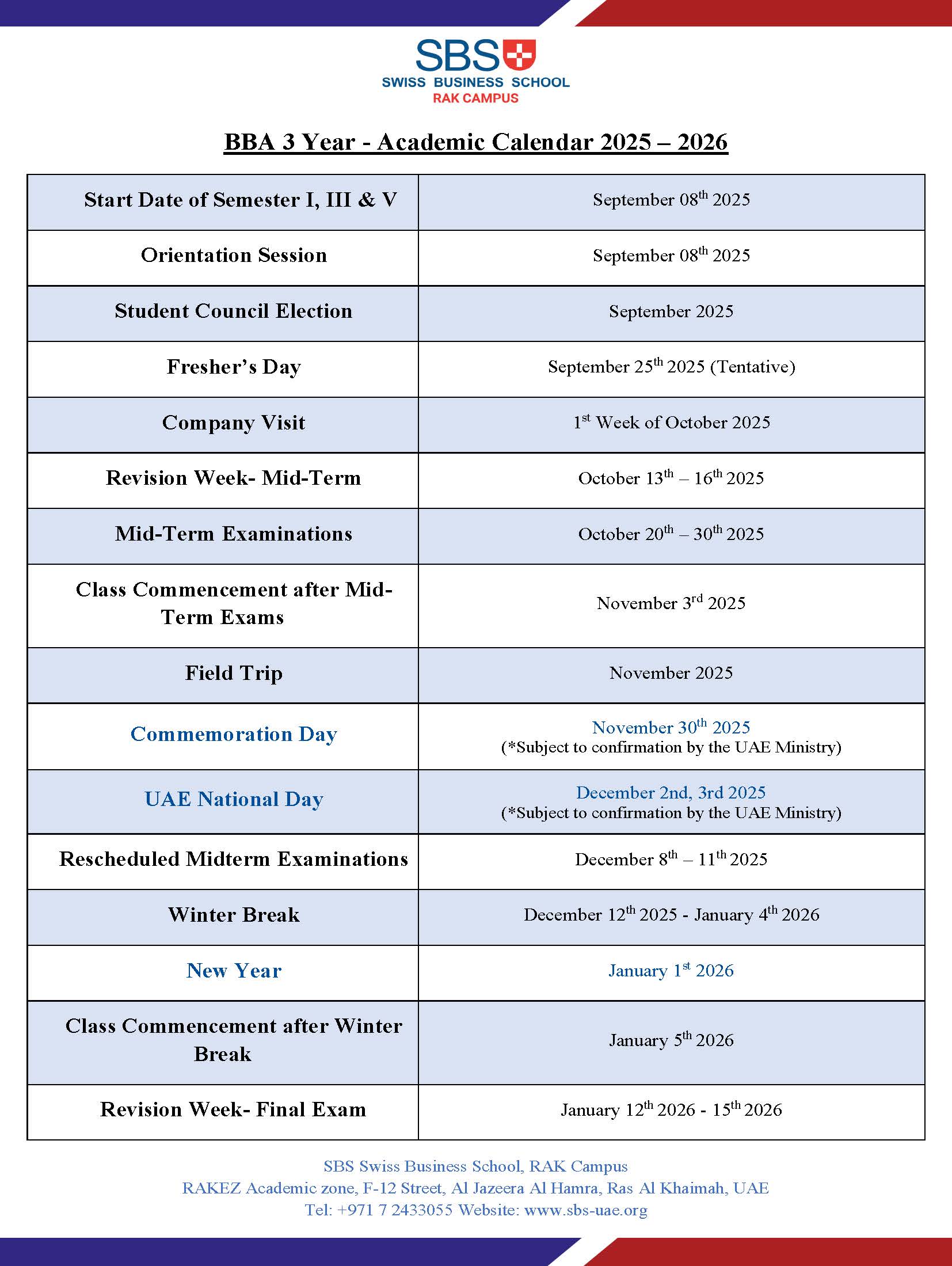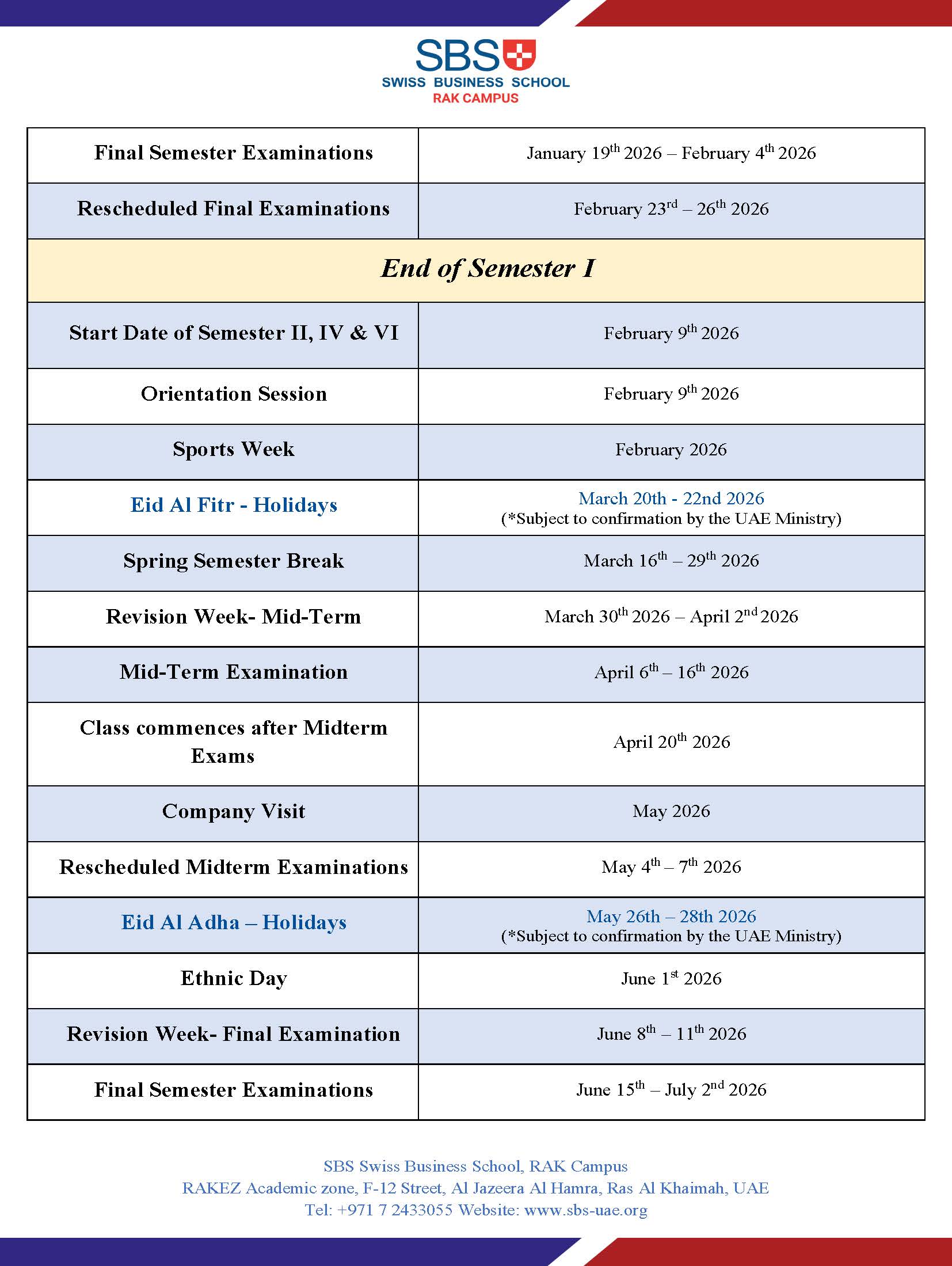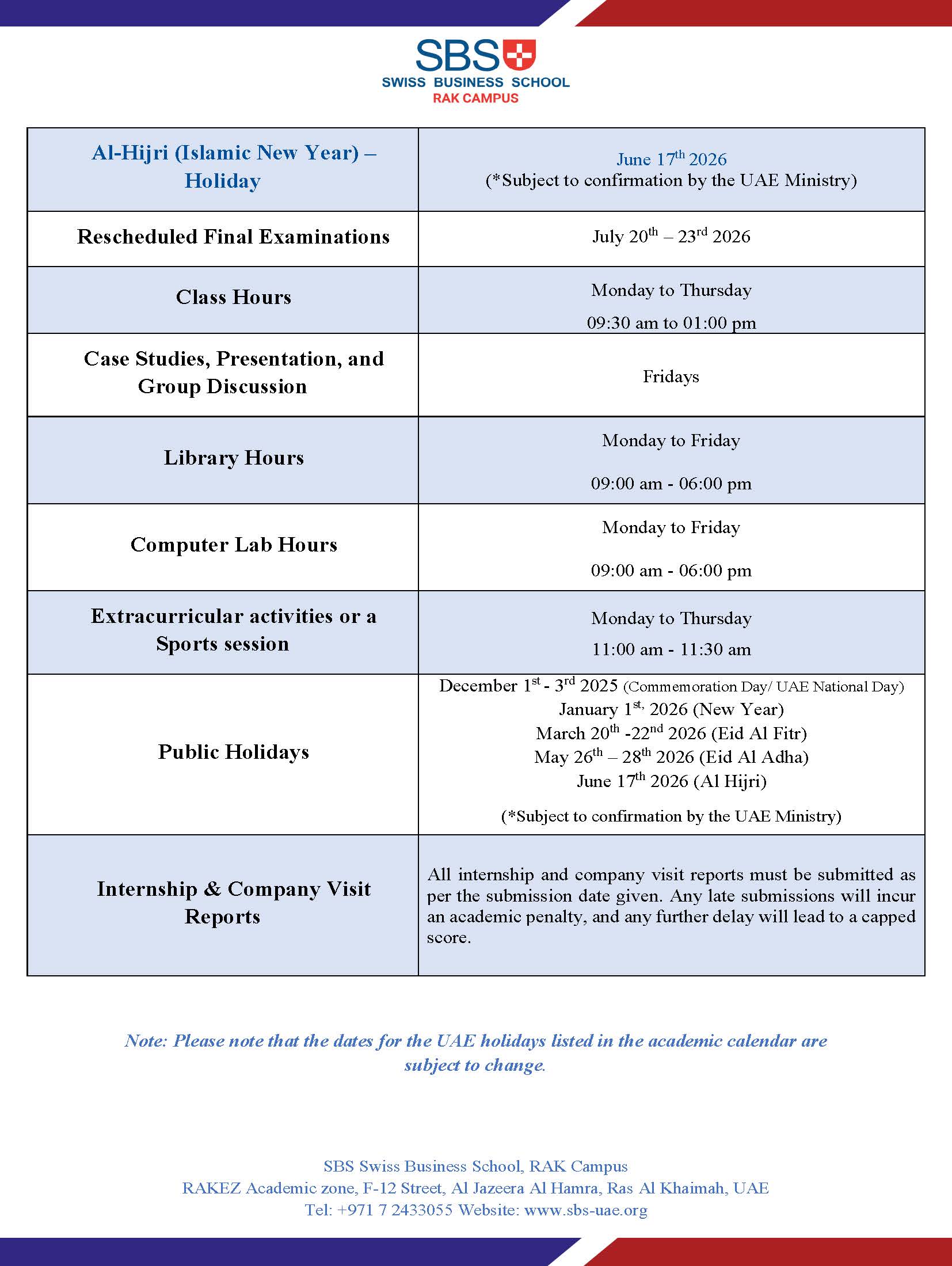Bachelor Of Business Administration (3 Years)
Course Details
Academic calendar
Fee Structure
Admission Criteria
Application Form
Course Details
BBA – International Management – Year 1
Semester 1| MGT 101 | Principles of Management |
| ACT 110 | Accounting Principles |
| QUT 112 | Quantitative Techniques |
| ECO 104 | Micro-Economics |
| COM 123 | Business Communication |
| MIS 127 | Essentials of IT |
| ENG 110 | English |
| FRL 100 | Foreign Language |
| OBL 124 | Organizational Behavior |
| ACT 139 | Financial Accounting |
| STA 108 | Business Statistics |
| ECO 106 | Macro-Economics |
| BUS 117 | Business Law |
| MKT 186 | Principles of Marketing |
| COV 105 | Company Visits |
| FRL 105 | Foreign Language |
BBA – International Management – Year 2
Semester 3| MKT 233 | Marketing Techniques |
| MGT 268 | Organizational Management |
| FIN 295 | Financial Management |
| MGT 218 | Operations Management |
| FIN 207 | Money and Banking |
| RES 269 | Research Methods I |
| ECO 210 | International Economics |
| HRM 251 | Personnel Management & Industry Relations |
| FRL 205 | Foreign Language |
| FIL 200 | Field Study |
| MGT 334 | Strategic Management |
| MIS 228 | Management Information Systems |
| RES 273 | Research Methods II |
| ETH 234 | Business Ethics & Corporate Social Responsibility |
| BNY 201 | Business Analytics with AI Tools |
| FRL 210 | Foreign Language |
| COV 205 | Company Visits |
BBA – International Management – Year 3
| MKT 368 | Strategic Marketing |
| MGT 339 | Leadership and Team Management |
| FIN 357 | Corporate Finance |
| FRL 310 | Foreign Language |
| ACT 399 | Managerial Accounting |
| FST 301 | Field Research in Sustainability and Business |
| STA 318 | Advanced Statistics |
| MGT 317 | Strategic Sales Management |
| ENT 363 | Sustainable Entrepreneurship |
| BUS 317 | Global Business and Sustainability |
| MGT 369 | Organizational Development |
| FRL 320 | Foreign Language |
| THE 350 | Thesis |
Academic calendar



Fee Structure

Admission Criteria
- Filled out application form
- Copy of high school diploma (Grade 12)
- Copy of high school transcript (grade sheet)
- Proof of English Skills (TOEFL, IELTS, Cambridge, other) unless previous education was conducted in English (otherwise SBS Swiss Business School admissions exam required!)
- Front-facing photograph, high quality in jpg/png/gif format
- Motivation letter
Notes
Exempted from admissions exam if applicable:- IB (International Baccalaureate): Minimum 28 total points
- SAT: SAT scores minimum 1200 total points
- GED: Minimum total score 2250
- three passes at GCE A level and a pass at grade C or above in GCSE English Language or Use of English.
- five passes at GCSE grade C or above, including English Language
- Students must provide an English certificate such as IELTS – Minimum 6.0, TOEFL – Minimum 90 or Cambridge advanced certificate.
Application Form
Application Form Link : LINK
